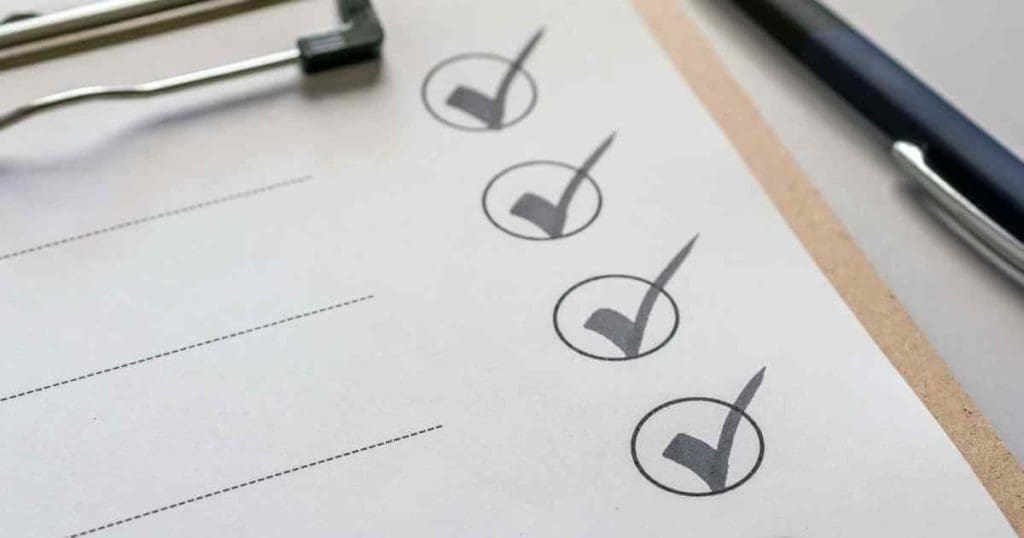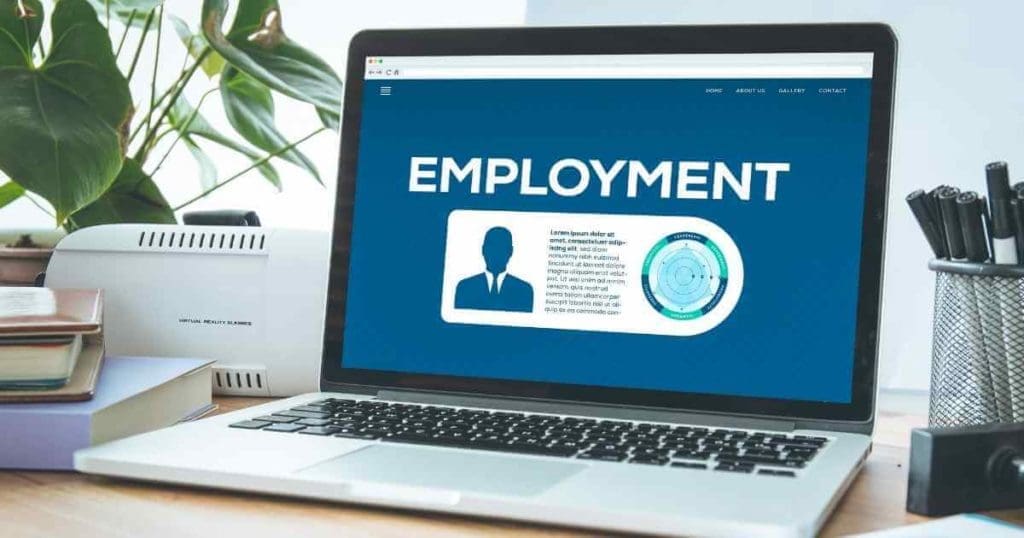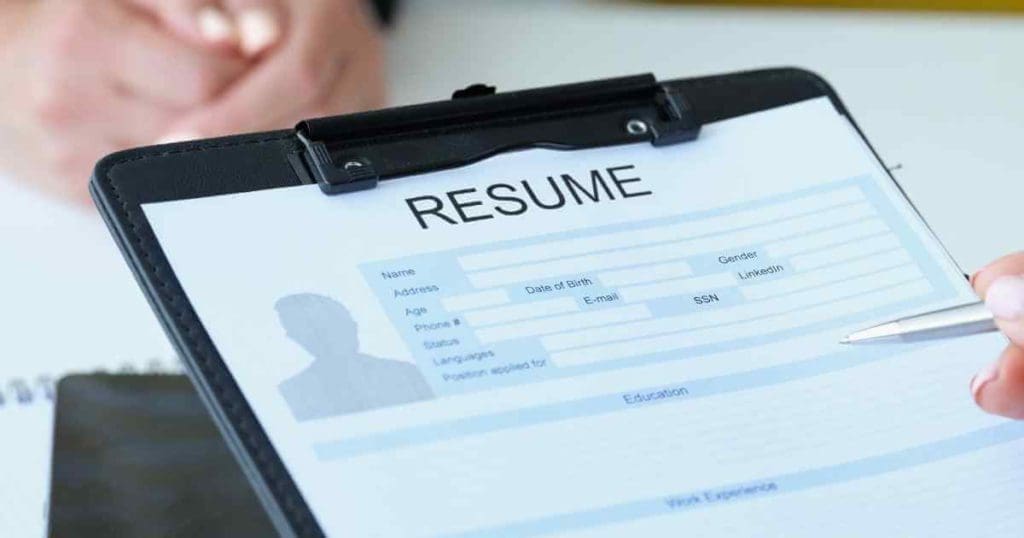“How long does a background check take?” is a common question our candidates ask when they accept a job with one of our clients. It’s important to know because you want to give appropriate notice to your current employer and mentally prepare for your new role.
Employers conduct background checks for several reasons, and the process differs from company to company. Sometimes a pre-employment check can take a few days, weeks, or even months, and as the days go by, anxiety can increase when a dream job is at stake. At MatchBuilt, we’ve helped hundreds of job seekers through the offer and background check process with numerous clients, all of whom have slightly different approaches.
How long does a background check take?
Usually, a background check report of a job applicant will take a couple of business days to a week. When a drug screen or reference check is involved, it can be more unpredictable and take a bit longer.
In this article, we’ll provide details on how long pre-employment and criminal background checks take, why employers run these screens on potential employees, and what they entail. We will also tackle types of employment background checks, common reasons why background checks take too long, and some of the frequently asked questions regarding background checks, among other details. In short, getting a background check at leading companies such as Uber, Sterling, Hirerite, Walmart, Doordash, Postmates, and more will take 3-5 business days.
Why do employers conduct background checks?
Employers perform background checks to ensure they hire the right employees with the ideal qualifications for a particular job. An employer may conduct a pre-employment background check to verify that a candidate did what they said they did, to verify no serious criminal records, and to ensure the appropriate experience for the job.
Employers also conduct these checks to avoid facing lawsuits as there’ve been instances when candidates give wrong information about themselves, such as providing fraudulent documents to prove their employment rights. When a company hires such an employee, it may face severe legal implications that a complete background check can avoid.
Another reason for conducting background checks is to avoid rehiring, which is often time-consuming and expensive for companies. Hiring suitable candidates reduce employee turnover significantly since those hired in the first place are qualified for the jobs, and the possibility of employers having to fire them due to other issues is kept low.
Further, companies conduct these checks similar to federal background checks to reduce the risk of hiring someone who poses safety and security threats to colleagues, customers, and other company associates. On top of that, companies take these checks to protect their data and that of their customers. With the increase in cybercrime, it’s essential for companies, especially those that deal with sensitive data, to thoroughly screen all applicants before bringing them on board.
What does a background check entail?
Background checks vary depending on the type of job a candidate is interested in, the industry, and the employer’s preference. Common types of background checks included identity, social security, education, criminal, and drug verifications. These checks aim to give employers confidence that applicants have what it takes to do their job well and not bring inconveniences to the organization. There are often concerns about how far a background check can go. Most background check companies go as far as ten years. However, some states have strict regulations on these checks and don’t allow them to go beyond seven years.
Further, employee background checks are governed by federal laws of the United States. They are generally considered “consumer reports” under the Federal Fair Credit Reporting Act (FCRA), which means they are subject to parameters around access and use. Remaining compliant with FCRA regulations throughout the background screening process is crucial. If a company ignores consumer laws—even accidentally—it can expose itself to expensive and time-consuming lawsuits that can run you out of business.
What is the Fair Credit Reporting Act (FCRA)?
The FCRA is a federal law that was enacted in 1970. Originally designed to help consumers dispute and resolve inaccuracies in their credit reports, this act has since been expanded to cover numerous other consumer reports.
Per TransUnion, a consumer report contains information a consumer reporting agency provides. This information may detail a consumer’s:
- Credit health
- Character
- General reputation
- Personal characteristics
- Mode of living
These details are typically used to determine eligibility for various purposes, including employment, credit, or insurance.
Among other provisions, and according to the FTC, the FCRA safeguards job applicants by ensuring:
- They have the right to be informed of a background check
- They have the right to provide consent for an employment background check
- They have the right to review information about their personal and financial information
- They have the right to correct any inaccuracies their background report may contain
- They have the right to appeal decisions if the applicant feels the decision was made unfairly
Types of Employment Background Checks
Employers conduct background checks to confirm that a candidate’s information when applying for a job is factual and provides them with more details about you.
Below are some of the common types of employment background checks.
Identity Verification
An identity verification check is the most common background screening employers conduct, typically in the initial phase. The analysis aims at searching whether the candidate has provided their correct name and if they are who they say they are. Identity verification is crucial for employers as it helps reduce instances of fraud.
Social Security Verification
Potential employers conduct a social security check to verify whether the applicant has permission to work in the US. It also confirms whether the social security number they have provided is correct.
Education Verification
The education verification type of check includes checking whether the academic details given on the resume, such as making the Dean’s List, are accurate. To do this, employers may contact the education institutions listed to confirm whether candidates schooled there and scored the grades indicated in their resumes.
Education verification may take several days, especially if an employer decides to authenticate several details about a candidate’s academic qualifications.
Employment Verification
While most people will share the history of their past employment without problems, others may give false details to land a job opportunity. That is one of the main reasons employers conduct employment verification background checks to ensure factual information. Past employers will likely be contacted on a thorough past employment history check.
During employment verification, the employer contacts a representative, typically in the human resources department of companies the candidate has previously worked with.
Reference Check and Verification
Prospective employers may also contact the professional references provided during the hiring process to ensure the details you shared match your actual experience and knowledge. Reference checks may take some time, depending on how quickly people respond to the calls.
Good reference check questions may include:
- How do you know the candidate?
- How did you work with the candidate?
- How did the candidate’s employment end?
- What were the candidate’s job titles or roles? …
- Did the candidate receive any promotions at this company?
- Does the candidate possess the job skills required for this position?
- How would you describe the candidate’s communication and leadership skills?
Criminal Verification
Employers conduct criminal verifications via a national criminal database to learn an applicant’s criminal history. A criminal record check involves obtaining information on the candidate’s past crimes, outstanding warrants, probations, and additional information.
A criminal background check is usually vital to organizations, especially for positions that involve working with vulnerable groups such as children or sensitive departments such as finances.
Personal Certifications
Suppose you have included some personal and professional certifications or membership in trade organizations when applying for a job. In that case, a potential employer may want to verify the information by conducting a personal certification check, and they do this to ensure what you said is true.
Drug Tests
Some employers require candidates to undergo drug tests as part of a thorough background check. These checks are prevalent for positions involving heavy machinery, handling prescription drugs, and being in charge of the well-being of other people. An employer may have specific test requirements, such as which facility should conduct the tests and how soon they need the results.
Credit Checks
Employers undertake credit checks to know the credit history of a candidate. These checks involve a credit bureau record search that may show bankruptcies, current debts, payment histories, etc. Employers mostly conduct these checks on people who will work in financial positions.
Driving Checks
Employers conduct driving checks to know your driving history and determine whether you are responsible. They perform these checks to keep insurance costs low and have confidence that their assets are safe in your hands if you apply for a driving role.
Social Media Check
Since social media has become very popular, some employers are embracing conducting background checks on applicants’ social media platforms. These platforms can offer valuable insights into a person’s character, beliefs, and values. Suppose an employer conducts a social media background check and finds vulgar language, hate speech, or documentation of the use of illegal substances. In that case, that alone may disqualify you from getting the job.
How long does a pre-employment background check take?
There is no one-fit-for-all answer for how long pre-employment background checks take. A check can take one day, while another one takes several days.
Generally, some checks may take longer than others, especially those requiring employers to contact several people. In addition, specific legal requirements needed to conduct background checks might make the process take longer.
The company’s degree of automation when conducting these checks also determines how long they will take. If the organization uses a highly automated process, completing the checks does not take long.
The response time of verification sources will directly impact how long the overall pre-employment check will take. Suppose the source respondent is busy or unreachable. In that case, the employer has to wait longer to get the information, which delays the process making it almost impossible to predict how long your background check will take. However, most take two to five days if no hitches occur.
In short, getting a background check at leading companies such as Uber, Sterling, Hirerite, Walmart, Doordash, Postmates, Amazon, and more will take 2-5 business days. For a gun background check in the states of California, Texas, Ohio, Arizona, North Carolina, Illinois, Louisiana, Georgia, and Oregon, you can expect the screen to take less than a day and, in most cases, just a couple of minutes.
Common Reasons for Background Check Delays
Sometimes, delays happen during background checks. That can be worrying as you may start wondering why you are not getting a response from an employer. Below are some of the common reasons for background check delays.
Giving Inaccurate Information
There might be delays if you give inaccurate information and the employer realizes so. When an employer discovers that what you said about yourself is not factual, they might want to do a more thorough check just in case you lied about other things. Automatically, this will take longer.
Unintentionally mixing up personal details can also delay the process. Crosschecking your name, driving license number, social security number, names and addresses of previous employers, and any other important details can help you spot mistakes and fix them to avoid delays.
Several Ongoing Checks
If the employer conducts several checks simultaneously, you can expect some delays. An employer may want to verify all applicants before deciding on the right candidate for the vacancy. The more the number of candidates, the longer the process will take.
International Experience
The screening process might take longer if a candidate has worked internationally. The employer may have issues getting information from the referral process. Some countries also have extensive privacy protection laws, which may further delay the process.
Multiple Jobs
An employer may want to verify each if you have held several jobs. They may need to contact all the representatives of the companies you have worked with, which will take longer.
Authorization Problems
Employers need to receive written consent from candidates before conducting any background check. Candidates also have to sign release forms for the exercise to proceed. There will be delays if you haven’t signed or submitted the written consent.
8 Best Background Check Companies
The companies below offer world-class background check services; there’s a good chance your protective employer will use one of them.
1. GoodHire
More than 100,000 employers of all sizes have trusted GoodHire for better background checks.
2. BackgroundChecks.com
Get fast, thorough background checks from the best-recognized provider in the industry. Protect your company and your customers against hiring the wrong people.
3. Checkr
Unlock talent. Unlock opportunity. Checkr powers the fastest, fairest background checks for businesses of all sizes. It’s time to change the way you hire.
Screen Now, Hire on the Spot. When your small business needs to hire quickly, look to ShareAble® to get fast, reliable background reports that can enable you to hire on the spot.
5. SterlingNOW
People First, Always. Sterling’s background and identity solutions help you build a foundation of trust and safety for your employees, customers, and partners worldwide.
6. Trusted Employees
Easy employment background checks Whether you’re hiring your first employee or hundredth, we make sure it’s smart, safe, and easy.
7. IntelliCorp
IntelliCorp offers a great combination of expertise, client service, and legal compliance that’s hard to beat. Learn more about the IntelliCorp difference today.
8. AccurateNow
Background check services for small businesses just got better. Get accurate, reliable background checks on demand and quickly access powerful screening services that our enterprise clients use – on a manageable, easy-to-use platform.
Background Check FAQs
Here are some of the frequently asked questions about background checks, how long they take, and what could cause you to fail one.
Most background checks take two to five days if no complications or unforeseen circumstances occur. If something unexpected arises, screening may take several weeks.
The fastest you can do a background check is less than a minute. Usually, this is possible with criminal checks that rely on databases. The employer only has to input some data into the database to access the applicant's criminal history immediately.
The time it takes to get a background check at leading companies such as Uber, Sterling, Hirerite, Walmart, Doordash, Postmates, Amazon, and more will take 2-5 business days. For a gun background check in the states of California, Texas, Ohio, Arizona, North Carolina, Illinois, Louisiana, Georgia, and Oregon, you can expect the screen to take less than a day and, in most cases, just a couple of minutes.
If an employer disqualifies you from a job because of some information they found during a background check, they are bound to notify you. In addition, if you ask for a copy of the results, they are supposed to provide it to you.
However, an employer may not notify you if you pass a background check. If they offer you the job, there is a high likelihood they did not find anything that would affect their hiring decision.
Background checks are taking so long in 2022 due to several factors, including an employer having to conduct these tests on several applicants simultaneously. Lack of cooperation from those involved, strict privacy rules, and a vast working experience also contribute to these delays.
Some factors that can cause you to fail a background check include a failed drug test, poor credit history, poor driving record, bad reviews from previous employers, inaccurate resume information, and criminal history.
If your background check is taking too long, there's no need to get worried. These checks are usually extensive, and there are often delays. A delay does not always mean that you have failed the test and lost the offer. Moreover, even if that's the case, the employer will let you know if it was the reason you did not get the job.
If you feel your background check is taking too long, it is okay to follow up with your prospective employer. Maybe they have finished the check and have not reviewed it yet. Following up can make them review it sooner and give you feedback; however, give them ample time before following up, say, after a week.
How Long Does a Background Check Take? Summary
There is no straightforward answer to how long instant background checks take. The process may take a few days or several of them, depending on factors like the type of background check, the automation levels of the process, and the cooperation of those involved, such as educational institutions. However, if you are very concerned about your pre-employment screening taking too long, do not hesitate to reach out to your employer to determine the cause of the delay.
Please note that we do not desire to, nor do we want you to consider this blog’s information as legal advice. Instead, this is intended only to be helpful (but general) information. You are encouraged to check with your legal counsel about any laws mentioned in this blog and any obligations you or your business may have.






